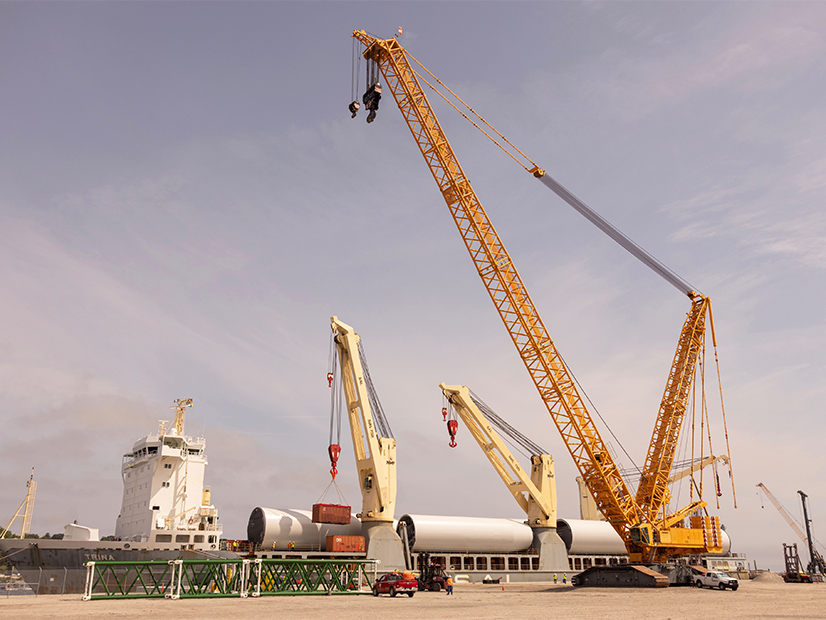
A federal judge has dismissed an attempt by Long Island residents to halt construction of an onshore portion of the South Fork Wind project, out of concern it will spread groundwater contamination.
The judge ruled that the federal agencies they sued are not involved with onshore trenching for South Fork, which is likely to be the first commercial-scale wind farm operational in federal waters.
The 132-MW South Fork is 35 miles off the eastern tip of Long Island. Its export cable will interconnect with the onshore grid in East Hampton.
Construction began in late 2022 and it is expected to start generating power this year.
In March 2022, four residents of East Hampton went to court to block South Fork, saying that while they supported the renewable energy generated by the project — which will not be visible from the upscale East End town — the trenches needed for the export cable will spread existing PFAS chemical contamination in the groundwater.
This poses a risk to public and private wells, including the ones they use, they said.
They targeted the U.S. Department of the Interior, Bureau of Ocean Energy Management, Department of the Army and Army Corps of Engineers, saying these agencies abdicated their legally required duty to provide thoughtful and serious consideration of known environmental concerns before granting approvals and permits for the project.
The plaintiffs are two married couples with property in the same part of town. Both use their houses as their primary residence, and both of their wells are contaminated with per- and polyfluoroalkyl substances — PFAS, the so-called forever chemicals considered a potential health threat and yet widespread in modern products, the environment and the tissues of most human beings and other animals.
The plaintiffs do not drink their well water but use it for irrigation and other purposes.
They asserted in their lawsuit that they would suffer irreparable harm from the project, and asked the court to order an immediate halt to activities that could spread PFAS.
On Monday, Senior U.S. District Judge Frederic Block granted a motion by the four defendant agencies and by South Fork Wind LLC (as an intervenor) to dismiss the complaint.
He noted that the New York Public Service Commission authorized the onshore portion of the project in March 2021 after determining through years of review that it would not exacerbate PFAS contamination.
BOEM did not approve the offshore portion until January 2022.
None of the defendants approved the onshore trenching or have jurisdiction over it, Block wrote.
Therefore, the four agencies cannot be connected to the plaintiffs’ alleged injuries and the plaintiffs lack standing to bring such a complaint, he said.



